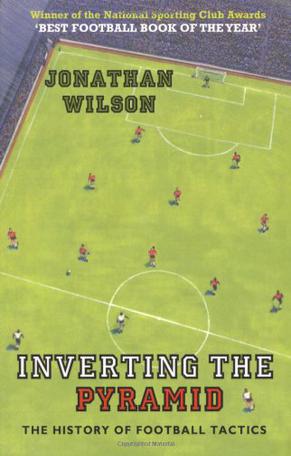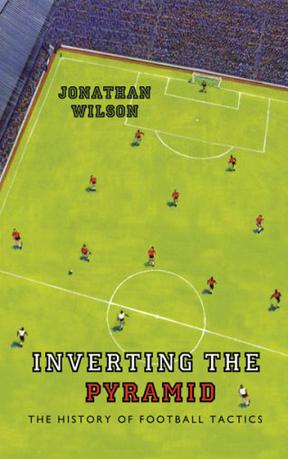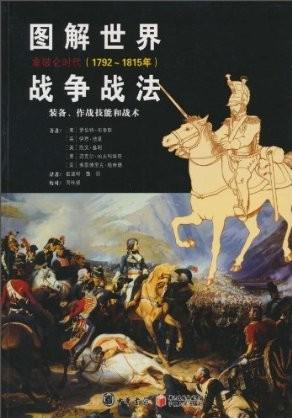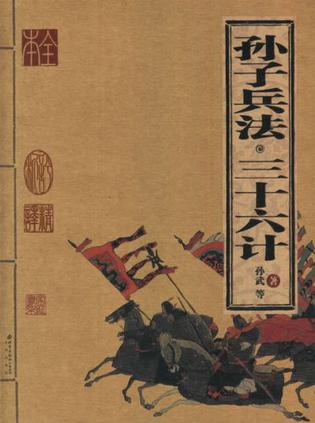-

Inverting the Pyramid
Whether it's Terry Venables keeping his wife up late at night with diagrams on scraps of paper spread over the eiderdown, or the classic TV sitcom of moving the salt & pepper around the table top in the transport cafe, football tactics are now part of the fabric of everyday life. Steve McLaren's switch to an untried 3-5-2 against Croatia will probably go down as the moment he lost his slim credibility gained from dropping David Beckham; Jose Mourinho, meanwhile, was often brought to task for trying to smuggle the long ball game back into English football. Here Jonathan Wilson pulls apart the modern game, traces the world history of tactics from modern pioneers right back to beginning where chaos reigned. Along the way he looks at the lives of great players and thinkers who shaped the game, and probes why the English, in particular, have 'proved themselves unwilling to grapple with the abstract'. -

Inverting the Pyramid
Whether it's Terry Venables keeping his wife up late at night with diagrams on scraps of paper spread over the eiderdown, or the classic TV sitcom of moving the salt & pepper around the table top in the transport cafe, football tactics are now part of the fabric of everyday life. Steve McLaren's recent switch to an untried 3-5-2 against Croatia will probably go down as the moment he lost his slim credibility gained from dropping David Beckham; Jose Mourinho, meanwhile, is often brought to task for trying to smuggle the long ball game back into English football (his defence being his need to 'break the lines' of banks of defenders and midfielders). Jonathan Wilson is an erudite and detailed writer, but never loses a sense of the grand narrative sweep, and here he pulls apart the modern game, traces the world history of tactics back from modern pioneers such as Rinus Michels and Valeriy Lobanovskyi, the Swiss origins of Catenaccio and Herbert Chapman, right back to beginning where chaos reigned. Along the way he looks at the lives of great players and thinkers who shaped the game, and probes why the English, in particular, have 'proved themselves unwilling to grapple with the abstract'. This is a modern classic of football writing to rank with David Winner's 'Brilliant Orange' and Simon Kuper's 'Football Against the Enemy'. -

图解世界战争战法.拿破仑时代
《图解世界战争战法:拿破仑时代(1792~1815年)》是引进英国斯派尔蒙特出版公司出版的Fighting Techniques of the Napoleonic Age 1792~1815,经一年的精心翻译而成。本卷运用彩色和黑白图片描述了从法国大革命到拿破仑在滑铁卢的最终失败,分析争夺欧洲各国军队的战略战术和作战技巧、武器与装备。 全书共分五章,涵盖法国大革命战争和拿破仑战争的主要部分,包括步兵战、骑兵战、指挥、炮战与围攻战、海战,每章都用重大战役为例说明战争方式的优点、缺陷和特征。 《图解世界战争战法:拿破仑时代(1792~1815年)》第一章通过考察里沃利战役(1797年)、马伊达战役(1806年)、奥斯塔特战役(1806年)和滑铁卢战役(1815年),指出了步兵的重大作用。探讨了轻步兵的运用和优点以及精锐步兵的阵形(如皇家卫队)、纵队与横队、防御性方队的使用等第二章考察了骑兵作为侦察部队和突击部队的重要地位,描述了精锐骑兵在索莫谢拉战役(1808年)和博罗迪诺战役(1812年)中扭转战场形势的著名行动 第三章通过奥斯特利茨战役(1805年)和瓦格拉姆战役(1809年)等战例,展示了指挥结构和该时代的战术,探究了将帅们在哉场上是怎样有效地综合运用骑兵、步兵和炮兵的,第四章分析了作为战场关键部分的密集炮兵的使用情况,如弗里德兰战役中骡马炮兵的革命性运用,以及诸如巴达霍斯战役(1812年)和汉堡战役(1813年)等重要围攻战中的围攻战术的运用,第五章分析了海战的影响,考察了尼罗河战役(1798年)、特拉法加战役(1805年)和伊利湖战役(1813年)等战役。 -

孙子兵法·三十六计
《孙子兵法》与《三十六计》堪称我国古代谋略学的双璧,在中国无人不知,无人不晓,影响极其深远。《孙子兵法》是世界上最早的伟大的兵法著作,深刻总结了春秋时期各国相战的丰富经验,集中概括了战略战术的一般规律。而《三十六计》则堪称一部奇书,它既讲兵家韬略,又大讲诡道,三十六之数又与《易经》的原理暗合。本书将这两部谋略学经典合二为一,进行了详细的解析,并配以精彩的战例和历史故事,使古典名著通俗化,趣味化。 法国的拿破仑将《孙子兵法》作为必备的兵书随身携带阅读,而第一次世界大战后德国威廉大帝悔称不早知有《孙子兵法》而战败。所以,世人公认,《孙子兵法》与德国克劳塞维茨的《战争论》并为全世界最伟大的兵学名著,而《孙子兵法》早在两千年前就诞生了,影响更为深广。 《孙子兵法》和《三十六计》的社会影响已远远超出军事学领域,备受各国政治家、外交家、经济学家、企业家的青睐。它既可用于商业竞争的决策和参谋,又能为个人处世出谋划策。 叩开历史门扉,尽享经典魅力!